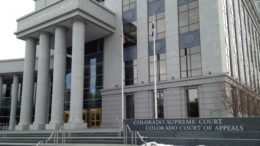News organizations object to suppression of sex assault case records that were admitted into evidence in open court hearings
A judge’s decision to restrict access to records in the case of a cardiologist accused of sexually assaulting and drugging victims does not comply with a 2021 Colorado rule meant to shine a light on why courts sometimes keep documents from the public in criminal proceedings, news organizations argue in new filings.





